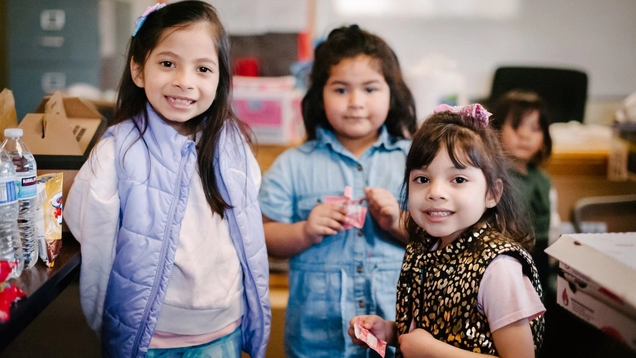
The City of Los Angeles, Community Investment For Families Department (CIFD), has launched a Child Care Policy and Equity unit to increase opportunities for the more than 200,000 children ages 0-5 by helping families access high-quality child care programs and supporting providers to strengthen their businesses.
As part of the new unit, CIFD has brought on Senior Program Manager Rachel Klein to lead the policy and advocacy work that will focus on supporting providers to increase their capacity to serve infants and toddlers in response to the expansion of transitional kindergarten for 4-year-olds across the state.
CIFD unveiled new website features to assist families navigating the challenges of finding a child care provider or paying for child care by connecting them with the California Child Care Resource and Referral Network. Child care providers can also get support for their businesses from the Resource and Referral network, including news on grants and stipends that will allow them to better nurture children and help them thrive.
“We are excited to collaborate with city leaders and organizations in addressing the need for broader and more cohesive child care services,” said Abigail Marquez, CIFD General Manager. “We recognize that breaking the cycle of generational poverty begins with children, and we’re committed to creating an environment where the care they need is accessible and impactful.”
CIFD is centering the voices of providers and families in their development of resources. In partnership with four of the local Resource and Referral agencies serving LA residents, CIFD conducted provider focus groups and has launched a family survey to better understand the child care needs of families.
CIFD will not provide direct services to families or providers, but it will serve as an advocate within the City and partner with County leaders and local organizations to improve systems, cater resources to families and providers, and increase awareness of care opportunities.
Like each CIFD program created to address poverty, the department identified the lack of child care as a major barrier to prosperity for families.
Families without access to consistent child care lose an average $3,350 in earnings each year, where 72% of low income families live in a child care desert (areas without enough licensed child care providers).
“We know that the pandemic had a devastating impact on child care as centers and facilities shut down, and we are committed to rebuilding capacity to create a vital environment for both those serving and those being served,” Los Angeles City Councilmember Monica Rodriguez said.